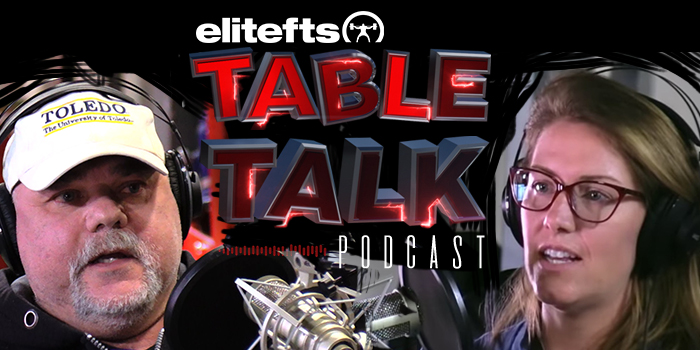
As a parent who has a son with autism, Dave Tate’s had more than a couple of experiences with people being rude and asking things like, “Can you calm your son down?”
When that happens, Dave gives a simple response: “No.”
"I apologize, my son has autism." I will never say that. Not with him present.
In refusing to say that Blaine has autism, Dave believes he is not giving his son the option to play the victim card. In doing so, Dave thinks Blaine will think, “Hey, I can do this because I have autism!”
That also allows Blaine to be himself unapologetically.
Now, if Blaine’s behavior is out of line, Dave will take him aside and explain in a way Blaine understands, that he misbehaved. If any child, one with autism or not, behaves inappropriately, then a parent or caregiver should shut that behavior down. There’s a difference between wildly inappropriate behavior and being too loud.
The few times that Dave has apologized to someone who complained, he stepped back and asked himself, “What message did I just send my kids just because I wanted to take the comfortable route?”
It’s always more comfortable to say, "I’m sorry because."
Now, what exactly does a person do in a similar situation that includes multiple kids with autism?
elitefts Managing Editor Sheena Leedham educates groups of kids and young adults with autism on the regular, so her response to someone who complains is different than that of a parent.
She’s rarely had a situation in which she’s had to apologize for their behavior, but that doesn’t mean she hasn’t spoken up if they’re misbehaving.
If the guys are doing something and it’s just not respectful, it’s not respectful. It depends, are you going to be able to have that conversation with them and say, "Hey, I know you guys are having fun, but could you bring it down a little bit." And yeah, they understand. There’s no need to play the autism card because that was a basic thing, regardless of what the situation was.
It also helps that Sheena plans ahead. For example, as a yearly tradition, she takes the Men’s Aspiration group of guys to the Spaghetti Warehouse. When calling to make reservations, Sheena is sure to inform the person on the other end of the line about the situation. She’ll mention her reservation includes a certain number of guys with autism and asks for a certain area that isn’t going to be overwhelming for some of these guys. This makes for a more pleasant experience for everyone at the restaurant.
Still, that doesn’t mean every experience is pleasant. She gives an example of one of these outings when a kid — who was not part of her group — kept hitting one of the guys with a balloon. She could see this guy getting worked up.
Rather than tell this other kid to stop — she’s not their parent, she doesn’t know where their parents are at — she talked to the riled-up guy:
I understand what’s going on right now. That kid’s being annoying. Your dad’s downstairs. Why don’t you take a break? Go downstairs, chill out, and then we’ll go from there.
And that was all he needed.
Best of all, it didn’t take any apologizing or pulling the autism card.
Though Dave’s noticed that he hasn’t needed to do that in a while. And for that, he thinks Autism Awareness has really helped in people understanding autism.
But let’s also not forget about the caregivers and parents. Autism Awareness is great for people with autism, but let’s also give caregivers and parents a break.
Step back and put things in perspective for parents, caregivers, and their loved ones with autism. We can all get better at that.











1 Comment